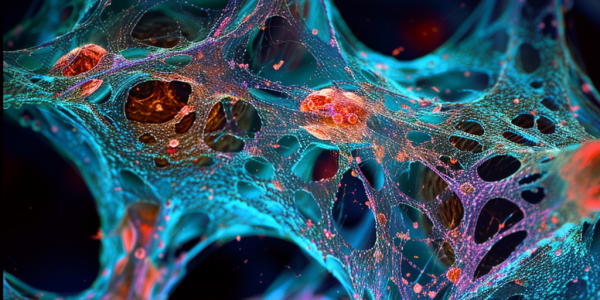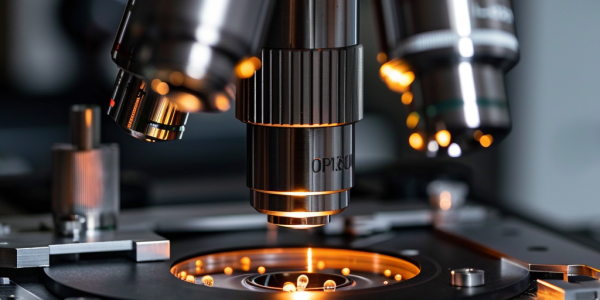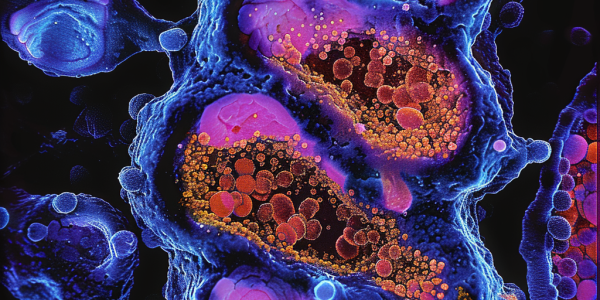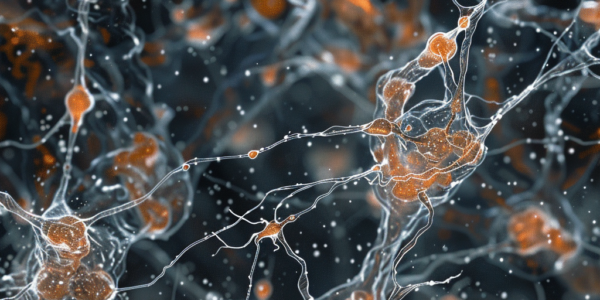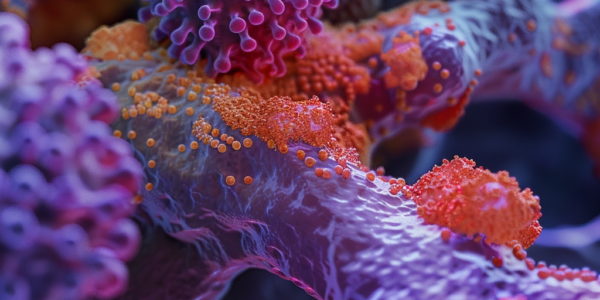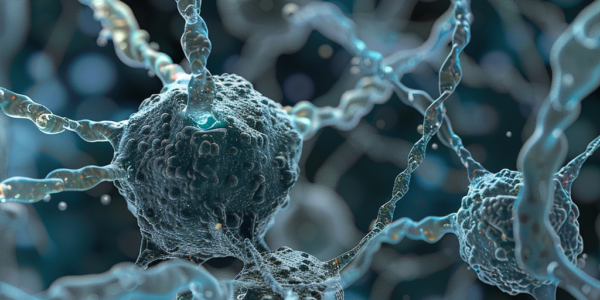Researchers Create Artificial Synapse Using Water and Salt, Mimicking Human Brain Medium
Researchers at Utrecht University and Sogang University have made a groundbreaking discovery in neuromorphic computing by creating an artificial synapse that operates using water and salt, mimicking the human brain’s medium. This innovative approach showcases the potential for more efficient and brain-like computer systems, paving the way for advancements in artificial intelligence and cognitive computing.
Uncovering How Cells Prevent Telomerase Interference with Double-Stranded Breaks
New research reveals how cells prevent telomerase from interfering with double-stranded breaks, crucial for genomic stability. A study led by cell biologist Titia de Lange unveils the role of the protein ATR in preventing telomerase interference, offering insights into genomic instability in diseases like cancer.
Brain Organoids: A Promising Tool for Targeting Neurological Disorders
Brain organoids, a cutting-edge technology in neuroscience, are revolutionizing the study of rare neurological disorders. These miniature 3D brain models offer researchers a unique opportunity to unravel the complexities of brain conditions. By mimicking the structure and function of the human brain, brain organoids are shedding light on the underlying mechanisms of neurological disorders and paving the way for more effective treatments.
Groundbreaking Gene Therapy for Sickle Cell Disease Shows Promising Results
Researchers at Children’s Hospital of Philadelphia (CHOP) have published final results of a clinical trial for gene therapy targeting sickle cell disease. The study showed 96.7% of patients did not experience VOCs for at least a year, leading to FDA approval of CASGEVY in December 2023. This groundbreaking therapy, developed using CRISPR technology, has shown promising outcomes in preventing pain episodes and improving quality of life for patients.
Revolutionizing Cellular Force Measurement with Quantum-Enhanced Diamond Molecular Tension Microscopy
Discover the groundbreaking Quantum-Enhanced Diamond Molecular Tension Microscopy (QDMTM) developed by researchers from the University of Hong Kong and Sichuan University. This label-free technique revolutionizes cellular force measurement, offering a nanoscale approach to studying cell adhesion forces. By utilizing quantum sensing technology, QDMTM provides new insights into cellular mechanics, paving the way for advancements in mechanobiology research.
Age-specific Responses of Nasal Epithelial Cells to SARS-CoV-2 Infection
Recent research reveals age-specific responses of nasal epithelial cells to SARS-CoV-2 infection, highlighting differences between children and older adults. The study uncovers distinct cell tropism of the virus and varying receptor expression levels across different age groups. Understanding these cellular reactions is crucial in managing COVID-19 cases and developing age-specific treatment strategies.
Groundbreaking Discovery: Specific Brain Cells Enhance Memory Focus and Storage
Groundbreaking neuroscience research identifies PAC neurons that enhance memory focus and storage without storing information themselves. Study sheds light on brain cells coordinating working memory, potentially leading to improved treatments for Alzheimer’s and ADHD. Discovery of PAC neurons utilizing phase-amplitude coupling to synchronize with memory-related brain waves highlights hippocampus’s role in controlling working memory. Research, part of NIH’s BRAIN Initiative and published in Nature, showcases Cedars-Sinai Medical Center’s pivotal role in unraveling brain processes. Understanding control aspect of working memory crucial for developing treatments for cognitive conditions, opening new avenues for exploring brain workings and memory processes.
Researchers Connect Lab-Grown Brain Tissues to Mimic Human Brain Networks
Researchers have achieved a significant breakthrough in neuroscience by successfully connecting lab-grown brain tissues to mimic complex networks found in the human brain. This innovative method involves linking ‘neural organoids’ with axonal bundles, enabling the study of interregional brain connections and their role in human cognitive functions. The connected organoids exhibited more sophisticated activity patterns, demonstrating both the generation and synchronization of electrical activity akin to natural brain functions. This achievement not only enhances our understanding of brain network development and plasticity but also opens new avenues for researching neurological and psychiatric disorders, offering hope for more effective treatments.
Groundbreaking Discovery: Immune Cell Susceptibility to SARS-CoV-2 Infection
Stanford Medicine researchers have made a groundbreaking discovery regarding the susceptibility of a specific type of immune cell to SARS-CoV-2 infection, the virus responsible for COVID-19. This unexpected revelation has significant implications for understanding the medical consequences of COVID-19 and opens up new possibilities for preventing SARS-CoV-2 infections from progressing into life-threatening conditions.
Groundbreaking Discovery in Neuroscience: Vesicles Contain More Complete Instructions for Altering Cellular Function
Groundbreaking neuroscience discovery reveals that vesicles in the brain contain more complete instructions for altering cellular function than previously believed. Study challenges previous research and sheds light on potential new treatments for neurodegenerative diseases like Alzheimer’s.


